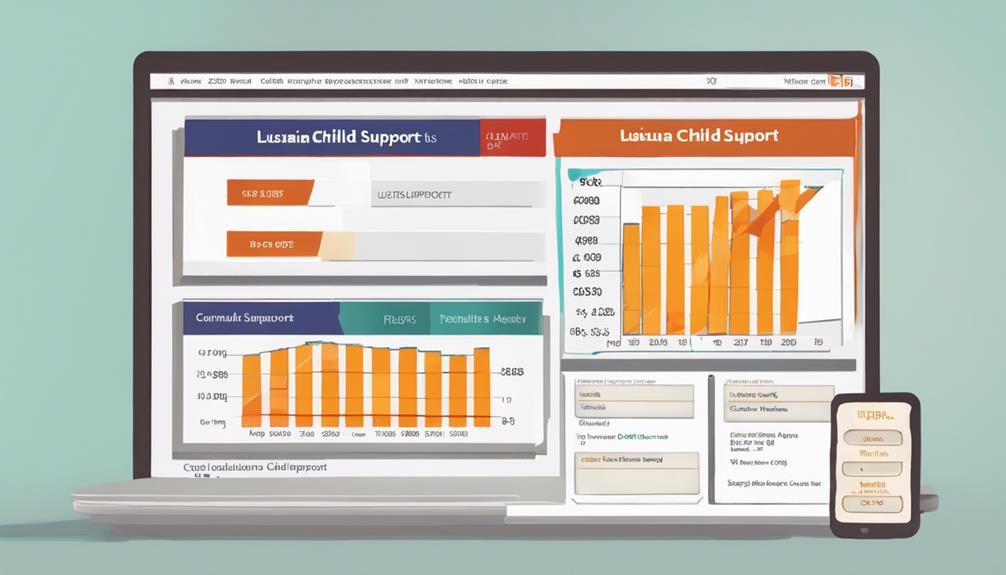Capital felony crimes such as murder, treason, and specific drug offenses carry severe punishments ranging from losing voting rights to life imprisonment without parole or even the death penalty. Aggravating factors like committing murder during another felony or multiple victims can increase the severity of punishment. High-profile cases like the O.J. Simpson trial and Oklahoma City bombing underscore the seriousness of these offenses. It is crucial to understand the legal consequences, mount a defense against charges, and take important factors into consideration. Further examination will unveil subtleties in sentencing, alternative choices, and support services accessible to victims.
Key Takeaways
- Capital felony examples include murder, treason, and certain drug violations.
- Punishments can be death penalty or life imprisonment without parole.
- Aggravating factors like multiple victims or murder for hire intensify punishments.
- Legal precedents consider victim's age, defendant's history, and crime brutality.
- Notable cases like O.J. Simpson trial and Oklahoma City bombing have societal impact.
Definition of Capital Felony
A capital felony is defined as a crime that encompasses the most serious offenses, including murder, treason, and certain drug violations. In Texas, convictions for capital felonies can lead to the loss of voting rights and severe punishments like the death penalty or life imprisonment without parole. The state imposes stringent penalties for these crimes to deter and punish offenders effectively. Capital felonies represent the most severe category of crimes, warranting the harshest legal consequences available in the justice system.
Individuals charged with capital felonies often encounter complex legal proceedings and require skilled defense attorneys to navigate the legal system successfully. Due to the gravity of these offenses, the legal nuances involved in defending against a capital felony charge demand expertise and experience. It's essential for those facing such charges to have competent legal representation to guarantee their rights are protected and to present the strongest possible defense in court.
Types of Capital Felonies

Capital felonies in Texas encompass serious crimes such as murder and treason. These offenses can lead to severe penalties like the death penalty or life imprisonment without parole.
Aggravating factors in sentencing play an important role in determining the severity of punishment for capital felonies.
Murder as Capital Crime
When murder is classified as a capital crime, it signifies the most serious legal designation for this offense. The implications are severe, with potential penalties including the death penalty or life imprisonment without parole. Capital felonies like murder in Texas are met with strict punishments, reflecting the gravity of the crime. A conviction for murder as a capital felony not only carries heavy penalties but can also result in the loss of the right to vote and other significant legal consequences.
The seriousness of murder as a capital crime is denoted by the potential imposition of the death penalty or life imprisonment without parole.
Texas, known for its tough stance on capital felonies like murder, has stringent punishments in place.
Conviction for murder as a capital felony can result in the loss of certain civil rights, such as the right to vote.
The prosecution of murder as a capital crime involves intricate legal proceedings due to the gravity of the offense.
Aggravating Factors in Sentencing
During sentencing for capital felonies, aggravating factors such as murder during another felony, multiple victims, and murder for hire play a pivotal role in determining the severity of the punishment. These factors intensify the seriousness of the crime and can lead to harsher penalties.
For instance, murder during the commission of another felony like robbery or kidnapping may result in a more severe sentence. Similarly, cases involving multiple victims or murders carried out for financial gain or at the behest of another party often result in more stringent punishments.
Understanding these aggravating factors is essential in comprehending the different levels of severity in capital felony cases and the corresponding sentencing outcomes.
Aggravating Factors in Capital Crimes

Aggravating factors in capital crimes are vital considerations during sentencing. These factors, such as prior criminal history or the level of violence involved, can result in harsher penalties like the death penalty.
Courts weigh these factors against mitigating circumstances to determine the appropriate punishment for the offense.
Key Aggravating Factors
Key aggravating factors in capital crimes greatly impact the severity of the punishment imposed. These factors serve as vital elements in determining the appropriate sentencing for individuals convicted of such serious offenses. Understanding the key aggravating factors is essential for legal professionals and those involved in the criminal justice system.
Here are four key aggravating factors commonly considered in capital cases:
- Heinousness of the Crime: The extreme cruelty, brutality, or depravity involved in the commission of the crime.
- Prior Criminal History: Past criminal behavior or a history of violent offenses can be considered a significant factor.
- Harm to the Victim: The extent of harm inflicted upon the victim, including physical, psychological, or emotional damage.
- Specific Circumstances: Factors such as killing a law enforcement officer, committing murder for financial gain, or targeting vulnerable individuals.
Impact on Sentencing
Taking into account the influence of aggravating factors in capital crimes, sentencing outcomes can significantly escalate based on the severity of the offense and its repercussions. Factors such as the nature of the crime, prior criminal history, and the impact on victims play an important role in determining the severity of the sentence.
Judges have the authority to impose stricter penalties when aggravating circumstances are present in capital felony cases. These factors can ultimately sway the decision between life imprisonment and the death penalty. It's imperative for defendants and their legal defense teams to have a thorough understanding of aggravating factors in order to navigate the complexities of capital crime cases effectively.
Legal Precedents and Trends
Legal precedents and evolving trends in the judicial system shape the consideration of aggravating factors in capital crimes, guiding the determination of appropriate charges and sentencing outcomes.
- The victim's age, the defendant's criminal history, and the brutality of the crime are key aggravating factors in capital cases.
- Legal precedents heavily influence which aggravating factors can lead to a capital felony charge.
- Trends in capital felony cases demonstrate a growing emphasis on mental health issues and mitigating circumstances during sentencing.
- The Supreme Court has established specific guidelines for identifying aggravating factors in capital cases, impacting the prosecution of such cases.
Notable Capital Felony Cases

Among the notable capital felony cases that have captured national attention is the O.J. Simpson murder trial. This high-profile case involved the former football star being charged with the murders of his ex-wife, Nicole Brown Simpson, and her friend, Ron Goldman.
Another significant case was the Oklahoma City bombing, which resulted in capital felony charges against Timothy McVeigh and Terry Nichols for the tragic bombing of the Alfred P. Murrah Federal Building.
Andrea Yates faced capital felony charges for the heartbreaking drowning deaths of her five children in Texas.
The Boston Marathon bombing also led to capital felony charges against Dzhokhar Tsarnaev for his involvement in the deadly attack.
Additionally, the Menendez brothers, Lyle and Erik, were tried for capital felonies in the brutal murder of their parents.
These cases serve as poignant examples of capital felony charges brought against individuals involved in serious crimes that have had a lasting impact on society.
Legal Consequences of Capital Felonies

Individuals convicted of capital felonies in Texas face severe legal consequences. These can include losing the right to vote, facing the death penalty, or receiving life imprisonment without parole.
Texas imposes strict penalties on those involved in heinous crimes like murder and treason.
Punishments for Capital Felonies
How severe are the punishments for capital felonies in Texas? Capital felonies in Texas carry significant consequences, including:
- Death Penalty: Convicted individuals may face the ultimate punishment of execution through lethal injection.
- Life Imprisonment: Some cases result in life imprisonment without the possibility of parole, ensuring a lengthy sentence.
- Loss of Rights: Those found guilty lose various rights, such as the right to vote and own firearms, impacting their civil liberties.
- Harsh Legal Penalties: Texas imposes strict penalties for capital felonies, underscoring the gravity of crimes like murder, treason, and specific drug offenses.
These punishments highlight the seriousness of capital felonies and emphasize the need for expert legal representation when navigating the legal system.
Life Without Parole
Life without parole serves as a common and severe legal consequence for individuals convicted of capital felonies in Texas. This sentence means that the convicted person will spend the rest of their life behind bars without any chance of parole. It's typically reserved for the most serious crimes, such as murder or treason.
Texas imposes strict penalties for capital felonies, with life without parole being a frequent outcome. Those convicted not only face the loss of their freedom but also lose many rights, like the right to vote. This harsh punishment is the most severe under the law and signifies the gravity of the crimes committed.
Death Penalty Option
The death penalty stands as a consequential option for capital felonies in Texas, particularly for egregious offenses like murder. Here are some key points to ponder regarding the death penalty option:
- Legal Process: The death penalty in Texas involves a rigorous legal process, including separate trials to determine guilt and punishment.
- Appeals: Convicted individuals have the right to appeal death sentences, leading to lengthy legal proceedings.
- Execution Methods: Texas primarily uses lethal injection as the method of execution for death row inmates.
- Public Opinion: The death penalty remains a topic of debate in Texas, with varying opinions on its effectiveness as a deterrent to crime.
Difference Between Capital and Non-Capital Offenses

Distinguishing between capital and non-capital offenses is vital in understanding the severity of criminal charges and their potential consequences. Capital offenses, such as murder, treason, and certain drug crimes, are considered more serious than non-capital offenses, which typically involve less severe crimes.
In Texas, being convicted of a capital offense can lead to the loss of the right to vote, a consequence not typically associated with non-capital offenses. The punishments for capital offenses in Texas are the harshest, including the death penalty or life imprisonment without parole.
This differentiation between capital and non-capital offenses plays an essential role in determining the severity of the crime and the potential outcomes for the accused. To navigate the legal system effectively and develop proper defense strategies, individuals must grasp the variances between these two categories of offenses.
Understanding these distinctions is fundamental for individuals involved in legal proceedings concerning capital felony charges.
Challenges in Defending Capital Charges

Mastering the intricacies of safeguarding capital charges requires a thorough understanding of legal procedures and the development of a strong defense strategy. When defending against capital charges, one must navigate through a myriad of challenges to guarantee the best possible outcome for the accused individual. Here are four key challenges faced in defending capital charges:
- Complex Legal Procedures: Capital cases involve elaborate legal processes that demand a detailed understanding to effectively defend the accused.
- High Stakes: The consequences in capital cases, such as the death penalty or life imprisonment without parole, elevate the pressure on defense attorneys to deliver a solid defense.
- Protecting Rights: Experienced defense attorneys are essential in safeguarding the rights of individuals facing capital charges, ensuring fair trials despite the gravity of the accusations.
- Mitigating Factors: Defending capital charges may involve challenging evidence, negotiating plea agreements, or presenting mitigating factors to potentially reduce the severity of the charges.
Each of these challenges emphasizes the complexity and importance of defending against capital charges.
Mitigating Factors in Capital Sentencing

Mitigating factors play an important role in influencing the severity of punishment for capital felonies. Factors like mental illness, age, and lack of criminal history are considered during capital sentencing. These elements can lead to reduced sentences, such as life imprisonment instead of the death penalty.
When faced with capital cases, courts evaluate mitigating factors to determine the appropriate punishment. Defense attorneys often present these factors to advocate for leniency in capital sentencing hearings. By highlighting mitigating circumstances, individuals convicted of capital felonies may have a chance at a less severe penalty.
Understanding the significance of these factors is vital in the legal system's decision-making process for capital offenses. The consideration of mitigating factors underscores the complex nature of capital sentencing and how various elements are taken into account in determining the outcome of such cases.
Alternatives to Capital Punishment

Considering the shifting landscape of criminal justice, exploring alternatives to capital punishment has become increasingly pertinent in addressing the complexities of sentencing.
Here are some alternatives to capital punishment:
- Life Imprisonment Without Parole: This option guarantees that the offender remains incarcerated for life, removing the possibility of parole or release.
- Restorative Justice Programs: Some states have adopted these programs, focusing on rehabilitation and victim-offender mediation to address the harm caused by the offense.
- Community Service, Counseling, or Educational Programs: In certain cases, offenders can be sentenced to these alternatives instead of facing capital punishment, emphasizing rehabilitation and reintegration into society.
- Advocacy for Rehabilitation: Advocates argue that focusing on rehabilitation and reintegration into society is more effective in reducing crime rates, promoting accountability, healing, and reconciliation in the community.
Support Systems for Capital Crime Victims

Support systems for capital crime victims play an essential role in providing counseling, advocacy, and financial assistance to those affected by such heinous acts. These systems help victims navigate the legal process and offer emotional support. Victim advocates make sure that victims' rights are upheld and respected throughout legal proceedings.
Support systems may include access to shelters, crisis intervention services, and referrals to other resources. In addition, victim compensation programs can assist with covering medical expenses, lost wages, and funeral costs for victims and their families. By offering a range of services, these support systems aim to alleviate the various burdens faced by victims of capital crimes.
Providing a sense of security and guidance, these systems aim to empower victims and their families during one of the most challenging times in their lives. Through a combination of practical assistance and emotional support, support systems for capital crime victims play a critical role in helping individuals cope with the aftermath of such traumatic events.
Frequently Asked Questions
What Are the Most Common Capital Crimes?
The most common capital crimes include murder, treason, and certain drug offenses. These offenses are considered the most severe and can result in harsh punishments like the death penalty or life imprisonment without parole.
Which Felony Is the Highest?
The highest felony classification, a capital felony, carries severe penalties like the death penalty or life imprisonment without parole. In Texas, capital felonies entail strict consequences under the law, including the loss of voting rights.
What Is a Capital Felony in Texas?
A capital felony in Texas is a serious crime like murder, treason, or certain drug offenses. It carries harsh penalties such as the death penalty or life imprisonment without parole. It is the most severe crime with strict legal consequences.
What Is the Penalty for a Capital Felony in Florida?
In Florida, the penalty for a capital felony is typically life imprisonment without parole. In certain cases, it can also lead to the death penalty. Convicted individuals lose various rights, including the right to vote.
Conclusion
To sum up, capital felonies are serious crimes that can lead to severe legal consequences, including the death penalty.
One interesting statistic is that as of 2020, there were approximately 2,500 people on death row in the United States.
It's essential to understand the different types of capital felonies, the mitigating factors in sentencing, and the support systems available for victims of capital crimes.
It's important for individuals to be aware of these aspects to navigate the complexities of the criminal justice system.











